Features of the profession of an analyst
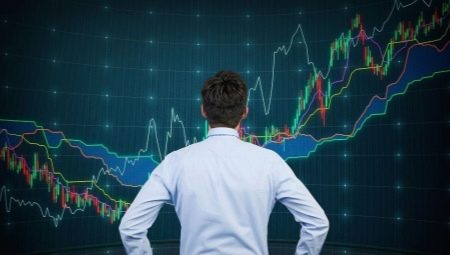
The world is changing, developing at a rapid pace. Computer technologies are coming to the fore, and information layers are growing exponentially. Therefore, in modern realities, analysts are so in demand - specialists who will never get lost in the sea of data and will help others to cope with this task.
Who is that?
The analyst is entrusted with the mission of processing an array of data on various issues, structuring and presenting them in the form of graphs and tables - a convenient format for understanding and perception. Based on the information received, a professional can share certain conclusions about the further development of events, interpret possible options for the turn of events. This is the most valuable part of the analyst's work.
The profession of an analyst is a collective concept. The essence of this specialist's training is in collecting a mass of digital data and analyzing the information received. What kind of data depends on the specifics of the work. An analyst can specialize in investments, specific market segments, finance, engineering, computer software, advertising, sociology, etc.
Data is provided by open sources such as press, statistics, reports, business intelligence or insider reports. By means of certain analysis methods, different algorithms are calculated to select the most profitable option.

What tasks does it perform?
In any area, the analyst's algorithm of actions consists of a certain scheme:
- collection of information from sources with subsequent primary processing;
- analysis of the received data with verification of their reliability;
- the formation of certain assumptions and hypotheses, theses;
- accounting for economic, financial, social and other indicators;
- development forecast for different vectors of influence;
- developing strategies for success;
- analytical reports and presentations.
Professional analysts are needed in various industries.
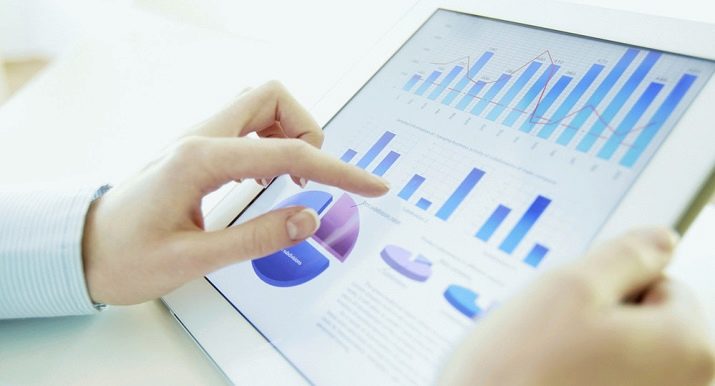
Business analyst
His duties are in the study of the internal structure of the company, all its business relationships in order to maximize the efficiency of the organization. Such a professional looks for weaknesses and possible problems in the company, while developing a concept for their elimination in order to save costs and increase profits. Such specialists are most often interested in companies focused on the production of products or engaged in trade.
Financial
Monitors the development trends of the world market, studying the financial performance of the company as a whole and of each of its specific divisions. Consults on investments, prepares recommendations, makes forecasts. Analysts in this area are in demand in banking, financial and investment organizations, on stock exchanges, in government agencies that regulate the economy.
Systemic
Connected with the world of information technology. Work in IT companies, divisions of large companies, providing outsourced services to clients. Responsibilities are in the preparation of technical requirements for software, concepts and pre-project documents, this specialist draws up regulations and determines the functions to be automated.
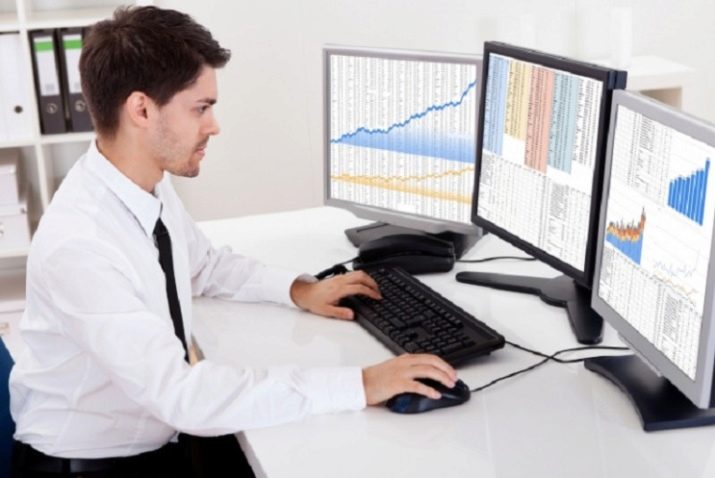
Military
Analytical review of significant geopolitical events, analysis of military-political changes and military doctrines of different countries of the world.
Political
Mainly engaged in management processes, more precisely, ensures the adoption of managerial decisions related to the economy or the social sphere.
Markets
Specialist in the analysis of the stock, foreign exchange and commodity markets. Responsibilities include a thorough analysis of what is happening in the corporate securities market, joint stock companies, companies, large enterprises, and sometimes entire countries that issue securities. A stock market analyst processes a variety of statistical data and provides professional advice on exchange activities.
Stock market analytics is increasingly being spoken of as an outgoing profession. First of all, it is connected with the development of automation in this area.
The duties of specialists are successfully performed by all kinds of trading technical analogues - robots, analyzing a huge amount of information. Based on them, the technique is able to make the right decisions.
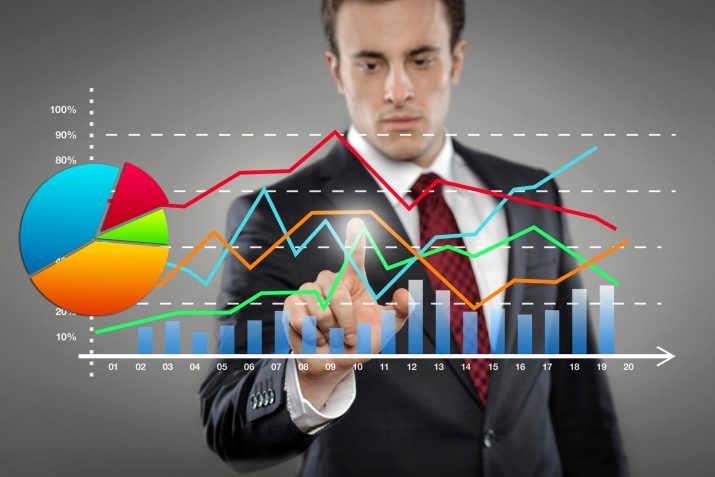
Investment
An expert who is responsible for the analysis of investment projects and their implementation. Representatives of this profession are also often called "Investment managers" or "investment project managers".
Exchange
A narrow professional, a risk analyst in the field of sales, whose functions include commercial analysis, tracking processes occurring at one or a number of trading floors. He also gives advice to help you buy or sell stocks, bonds, currencies and other valuable assets in a timely and profitable manner.
SEO Analyst
Identifies the reasons that prevent the site from being on the leading positions in the search results. This specialist has more comprehensive knowledge of website promotion, determines by testing which methods will be effective for website promotion (conducts SEO analysis).
Brand Analyst
Provides the client with a convenient and effective tool for tracking their own reputation on social networks. Business intelligence is a system designed for real-time monitoring and analysis on social media.For this, the service provides a package of tools that allow you to monitor and interact with users.

Computer technology
An IT specialist develops, tests and improves new computer programs, applications and utilities. He is also responsible for consulting clients on these issues. Such a consultant has a lot in common with the responsibilities of an information systems security analyst.
Grocery
All modern companies today want to receive "big data", and almost all have a data science department. His staff is looking for promising product growth points by scaling marketing challenges and challenges.
Economic
Financial and economic consultant, collecting economic and statistical data with their further analysis. The analyst-economist uses scientific and economic methods, interprets them with the subsequent formation of recommendations for the development of the enterprise.
Pricing issues, forecasting the movement and state of the market environment, determining the parameters of competitiveness and assessing the execution of budgets are also included in the duties dictated by the job description.

Bank
This is an optional section of analytics, the specialists of which are included in a large and diverse group of expert specialists in various types of analysis, either of individual banks or of the banking sector as a whole. Often the best banking analysts are strategists from investment companies and banks, as well as employees of rating agencies.
Analyst chemist
Analyzes the composition of finished products and their composition. The competence of this specialist is to draw conclusions about the properties of the product and its quality characteristics.
Real Estate Market Analyst
The professional standard prescribes this specialist to be able to process data and develop statistical analyzes in various areas of real estate. He defines the goals and objectives of researching the real estate market, monitors data with their subsequent analysis, makes forecasts for the further development of the real estate market.
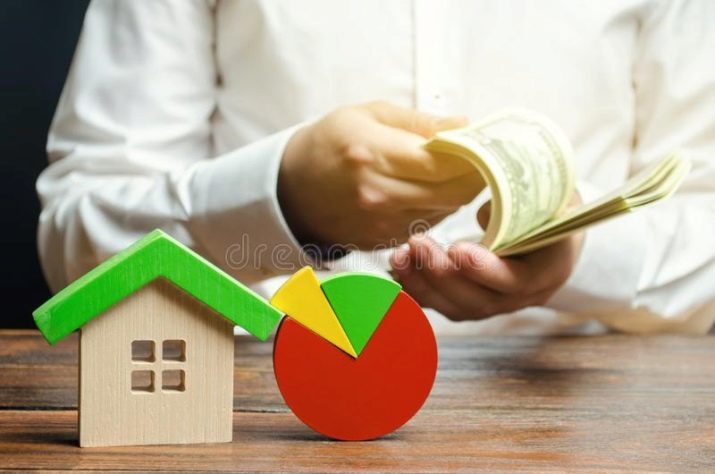
Sports
Studying situations in one or several sports, evaluating and making predictions, based on which they set odds in bookmakers. In order to avoid mistakes in recommendations, he must own a large amount of data (statistics, the current state of the team, internal problems, insider information) and correctly interpret the information.
Required skills and qualities
To be successful in this profession, you need a number of qualities, the main of which is common sense. Logic and balanced (not careful!) Judgments are also important. If the analyst is too cautious, then he takes into account all the risks, but does not see the chances. And the overly assertive analyst anticipates all the odds, but does not take risks into account.
An analyst is a creative profession, so it is important to have not only an analytical mindset, but also extraordinary thinking in order to put forward original ideas, bypassing competitors... You need to be able to express your thoughts in writing, in a report that will interest clients, and the management will not have any questions when reading it.
Working as an analyst requires discipline, which is regularity and timeliness. A good analyst must be proficient in several professions at once. He needs to know the real estate industry, professional accounting, real estate appraisal and sell ideas well.
His responsibilities include providing the full amount of necessary information to the head for making management decisions, with all the pros and cons, risks and opportunities, financial and performance indicators.

Who is it suitable for?
At first glance, it may seem that the profession of an analyst is incredibly boring and extremely monotonous. This is a wrong judgment, because the tasks solved by the analyst are not repeated... First of all, this is due to the constantly changing data set. These data very often relate to completely different areas, since absolutely all areas of activity that affect the stock markets, etc. are analyzed. In this regard, the profession of an analyst is still in demand at this stage of social and social development.
A person who is inclined to process large information arrays can work as an analyst. This can be a highly educated employee with one or more university degrees in finance, economics, or information technology. The specialist will need:
- analytical mind and the ability to think logically;
- a responsibility;
- attentiveness and even pedantry;
- organization and consistency;
- good memory;
- endurance and patience;
- observation;
- creative thinking.
The ability to collect and process a mass of diverse data, to look for interconnection in them, knowledge of modern software for operational work with information will be fully useful.
Knowledge of management, accounting, design and technical documentation is very useful.

How to become?
Depending on the direction of future activities, the analyst must first undergo training and receive relevant higher education... Most often, such specialists are trained at the faculties of economics, finance, computer technology, mathematics, statistics. Differences in specific specialties are possible. The main thing is that, in addition to basic knowledge in the basic subject, the student is taught the basic tools for analysis, working with intelligent data processing systems.
In order to get the position of an analyst in the future, it is advisable to study at the leading university in the country, where there is a good scientific base and teaching staff. When entering the university, you will need the results of the exam in the following subjects: Russian and foreign languages, computer science, social studies, profile mathematics. In such educational institutions there is usually a high competition, therefore, most likely, the applicant will have to master not only the school curriculum for several years, but also go through an additional program with tutors.
Most of the universities in this profile are located in Moscow and St. Petersburg:
- Russian University of Economics. G.V. Plekhanov;
- National Research University Higher School of Economics;
- Russian Academy of National Economy and Civil Service under the President of the Russian Federation;
- National Research Nuclear University MEPhI;
- Saint Petersburg State University.
High school students who are interested in the profession can study for six months for free at the School of Analysts at the RANEPA.

Professional perspectives
The analyst's level of knowledge automatically allows him to become a candidate for career advancement equally in the public service and in the corporate sector. Many of the rank-and-file employees “grow up” to the heads of departments, are leading very promising projects. All this is realistically achievable subject to painstaking training and timely professional development.
Companies, organizations, enterprises of various areas of activity need analysts... Also, analysts can do research and advise on projects of private customers. As a rule, financial, investment and computer systems analysts can boast of a fairly high income. Sports analysts' salaries are slightly lower. In general, the salary of such a specialist depends on where exactly he works, what financial flows this or that organization operates.
The labor market offers not so many good specialists in this field, so the profession is highly paid. On average, analysts in Russia receive 60-75 thousand rubles a month.Employees engaged in sports events (30-35 thousand), market analysis (up to 50 thousand) earn slightly less. Analysts employed in large banks and investment companies with foreign capital can receive about 130 thousand rubles for their work. The geographical factor is also important in determining wages. In Moscow, which is in the status of a financial, economic, innovation center of the state, the average monthly salary of an effective analyst reaches 100 thousand rubles. Specialists in the regions can count on no more than 40 thousand rubles. Based on these data, as well as taking into account the opinion of experts from the largest recruiting agencies, it can be argued that the profession of an analyst will not lose its relevance in the coming decades.





